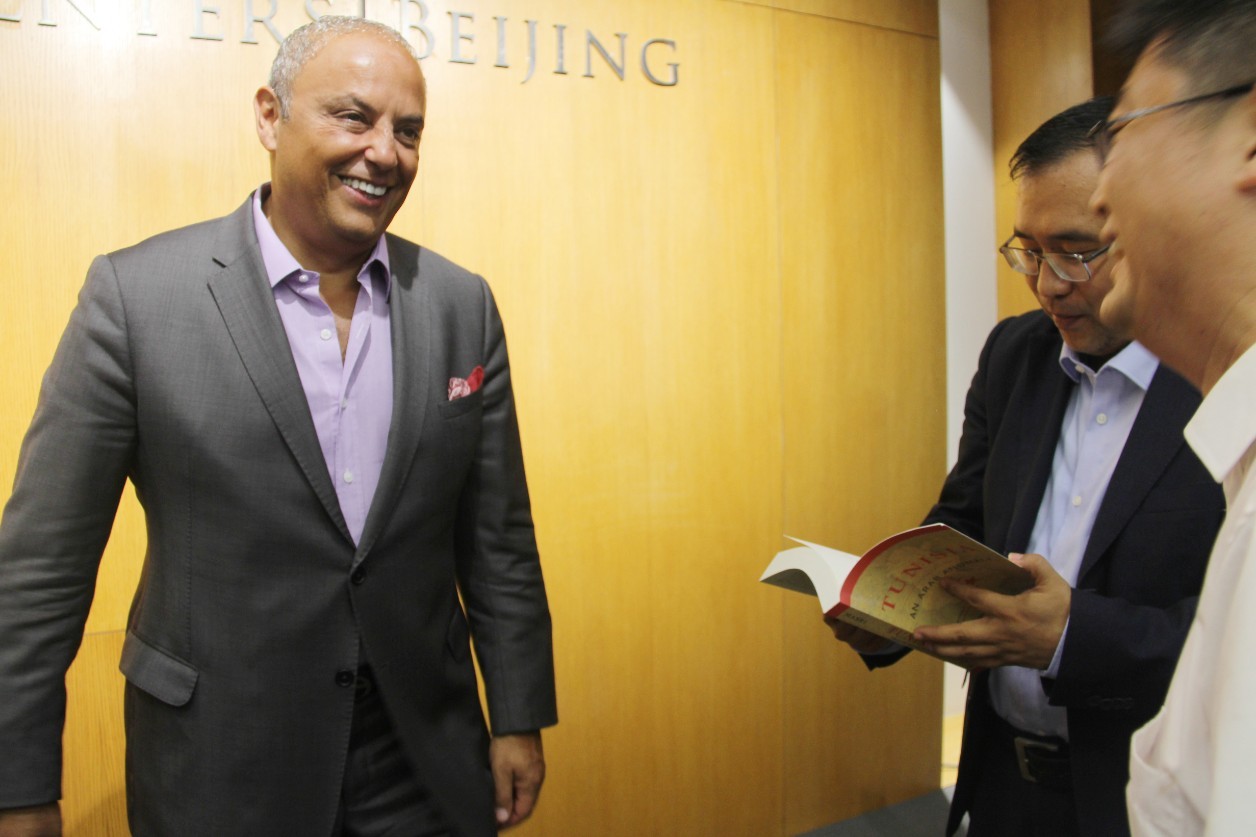Professor Safwan Masri speaks on the shifting dynamics in the Middle East and celebrates Columbia Global Centers' 10th anniversary
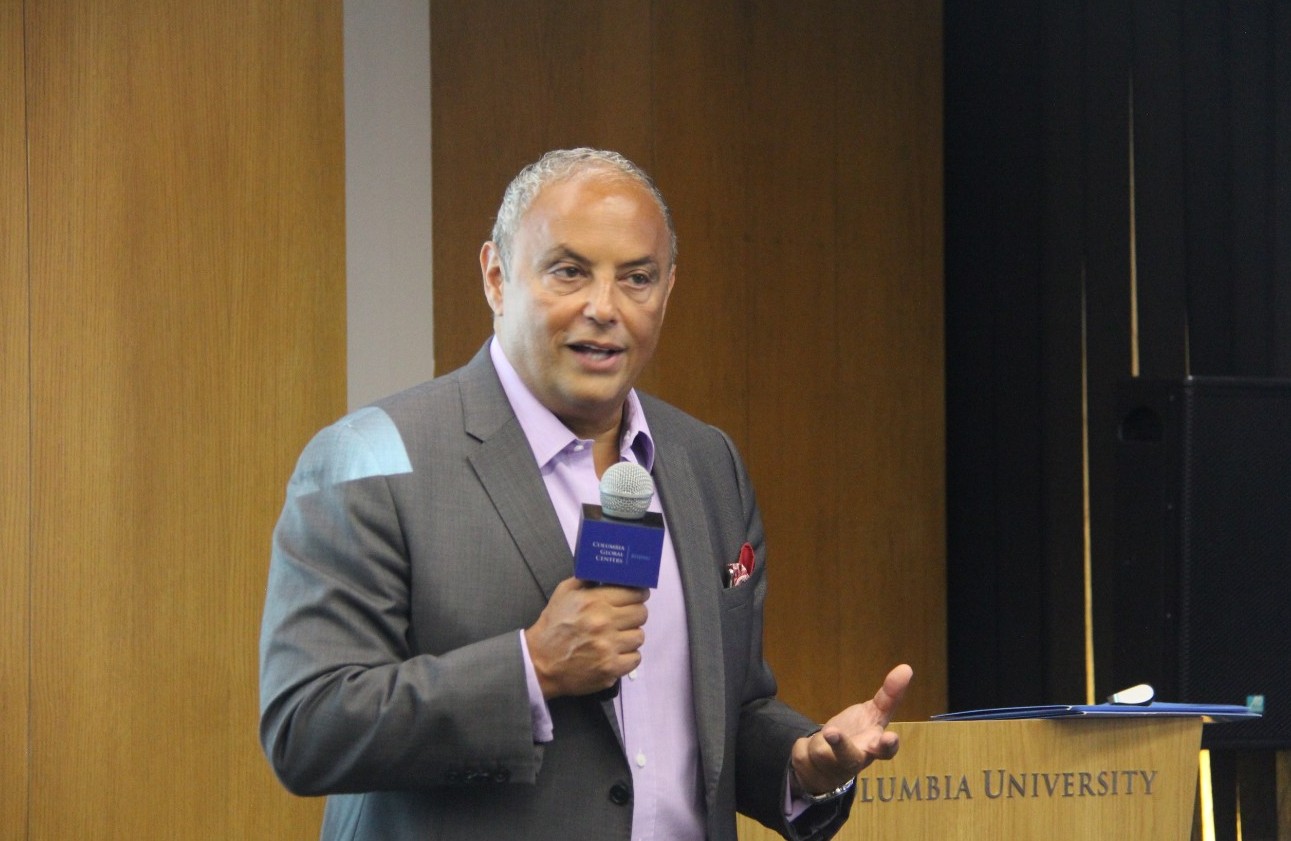
The last two decades have seen shattered traditional power dynamics in the Middle East. With the close studies on the regional situation, Professor Safwan M. Masri, Executive Vice President for Global Centers and Global Development at Columbia University, also a Senior Research Scholar at Columbia’s School of International and Public Affairs and a member of the Council on Foreign Relations, shared his insights on the shifting dynamics in the Middle East at Columbia Global Centers | Beijing on June 2, 2019.
As the author of Tunisia: An Arab Anomaly (Columbia University Press, 2017), Professor Masri also introduced the result of his research, pointing out that as the only country that experiences a relatively smooth transition to democratic society since Arab Spring, Tunisia enjoys environmental and social conditions that could not be replicated for other Arabic countries.
Professor Masri regards Tunisia as a key to understand the rest of the Arab world, which is of great significance for China today. "Middle East is important for China," said Professor Masri. "Not only for China's Belt and Road Initiative, but also because the Middle East provides access to the rest of the world.”
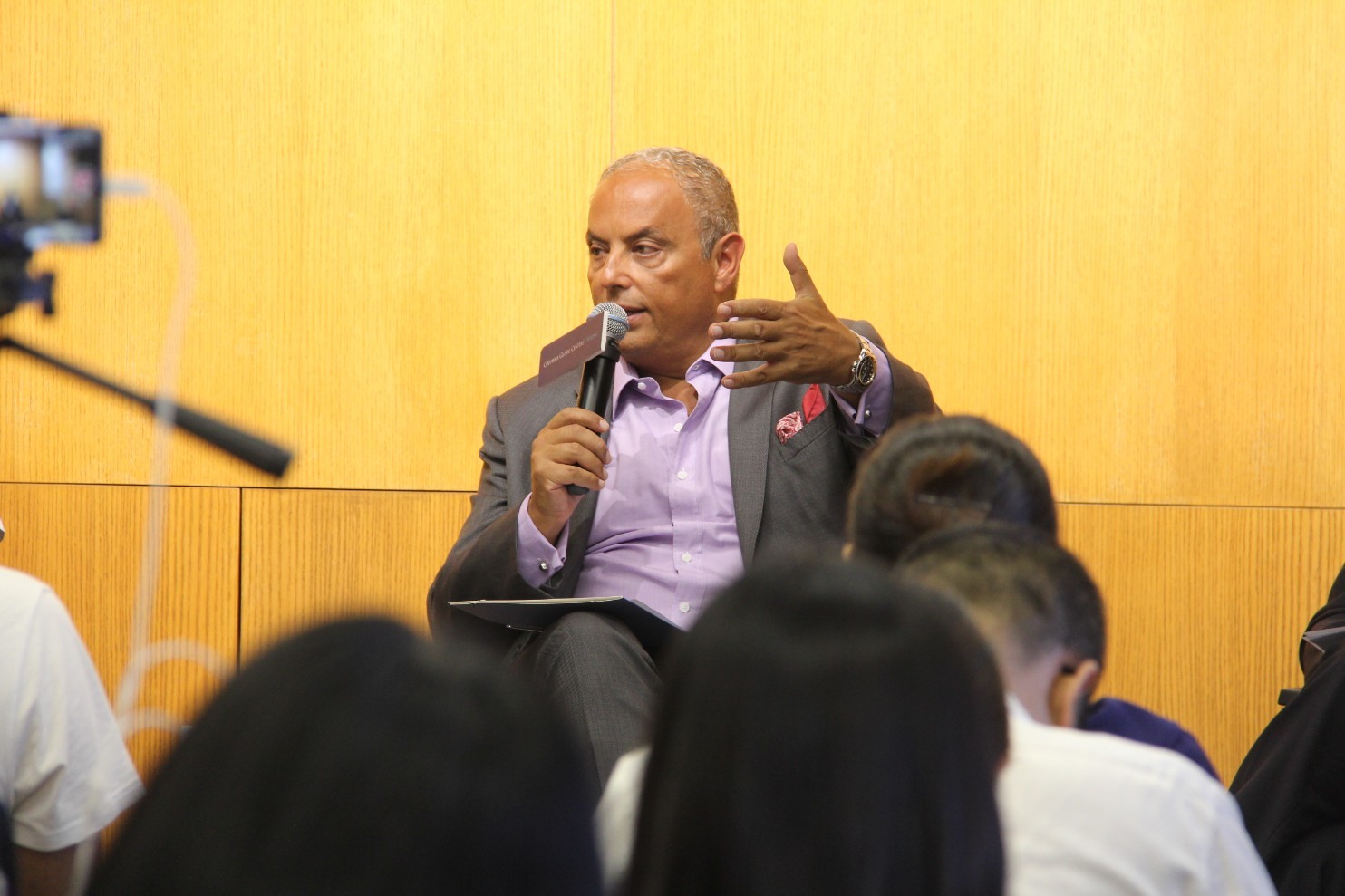
The protesters in the street of Tunis, the capital of Tunisia, in December 2010, were the first protesters of what is afterward called Arab Spring. The wave of the revolution that sought to overthrow oppressing regimes, to raise living-standard, and to establish democratic societies quickly hit other Middle East countries like Lybia, Yemen, Syria, and Egypt. Now, eight years later, these countries are set on different paths. While Lybia, Yemen, and Syria suffer constantly from civil war, and Egypt under dictatorship, Tunisia is the only country that avoids internal chaos and establishes democracy.
In his speech, Professor Masri highlighted a few unique conditions that contribute to Tunisia's democratic transition. Environmentally, being far away from the field of conflict, the lack of abundant natural resources, and the imposing military power make Tunisia's political and economic presence comparatively less conspicuous in the Middle East and in the world, allowing the nation to avoid major disputes and conflicts in the Arab World.
Today's state border of the Middle East is largely an artificial creation, resulting from British and French colonial arbitrary in the 18th century till the First World War. Without a coherent national history and identity, the establishment of post-colonial orders in these countries relies heavily on military dictatorships and religious regimes.
Professor Masri expounded that Tunisia is the only two countries (besides Egypt) that inherit their borders, history, and national identity from a tradition that can be traced from ancient to contemporary civilization. This distinct characteristic preserves the organic social dynamics in Tunisia, giving it space and drive to invest in education, to cultivate an active civil society, to tolerate different religions, to promote women's rights, and to establish a progressive constitution. These are vital factors in democratization that were missing in other Arabic countries.
Besides the case of Tunisia, Professor Masri also shared his insights on the shifting dynamics in the region. He started by introducing the history of the Six-Day War, the conflict between Israel and Arab countries of Egypt, Syria, and Jordan in June 1967. The War led to Israel's occupation of Golan Heights from Syria, the West Bank, and East Jerusalem from Jordan, Sinai Peninsula, and the Gaza Strip from Egypt until today, producing several hundred thousands Palestinian refugees that fled Israeli rule. The humiliation of defeat worsened the domestic situation in these countries, whereas authoritative regimes rose, investing more resources in the military, neglecting domestic development and education.
New leadership in the past decades has also been emerging in the Arab World. With leaders like Mohammad bin Salman (MBS) from Saudi Arabia and Mohammed bin Zayed (MBZ) from the United Arab Emirates trying to redefine the power dynamics of the region by confronting Iran. The gravity of power in the Middle East nowadays has changed from Cairo, Damascus, and Baghdad to Riyadh, Abu Dhabi, and Doha. Professor Masri then explained U.S. position in these shifting power centers under Trumps administration, as well as Turkey and Russia's involvement in maintaining the status quo.
The speech ended with a note on China's economic and political interest in maintaining steady relations with the Middle East.
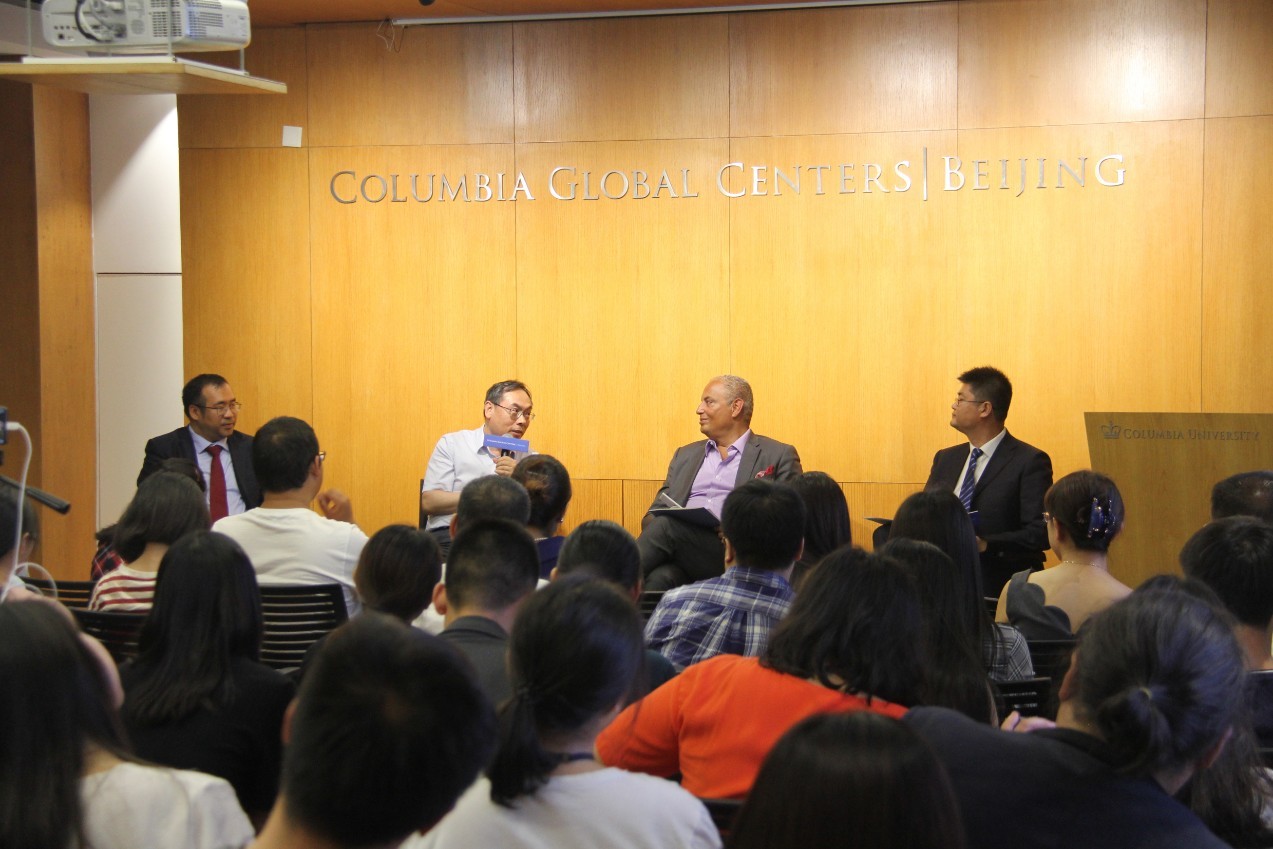
Joining the panel discussion were Professor Suolao WANG, Associate Dean of the Institute of Area Studies at Peking University, and Professor Dong LIU, Deputy Director of Middle East Studies Division of Institute of West-Asian and African Studies at Chinese Academy of Social Sciences. The discussion focused on a variety of pressing issues concerning the Middle East from political and economic viewpoints, as well as its relations with China. Professor Bingbing WU, Deputy Director of the Department of Arabic Language and Culture and Director of the Institute of Arab-Islamic Culture at Peking University, served as the moderator.
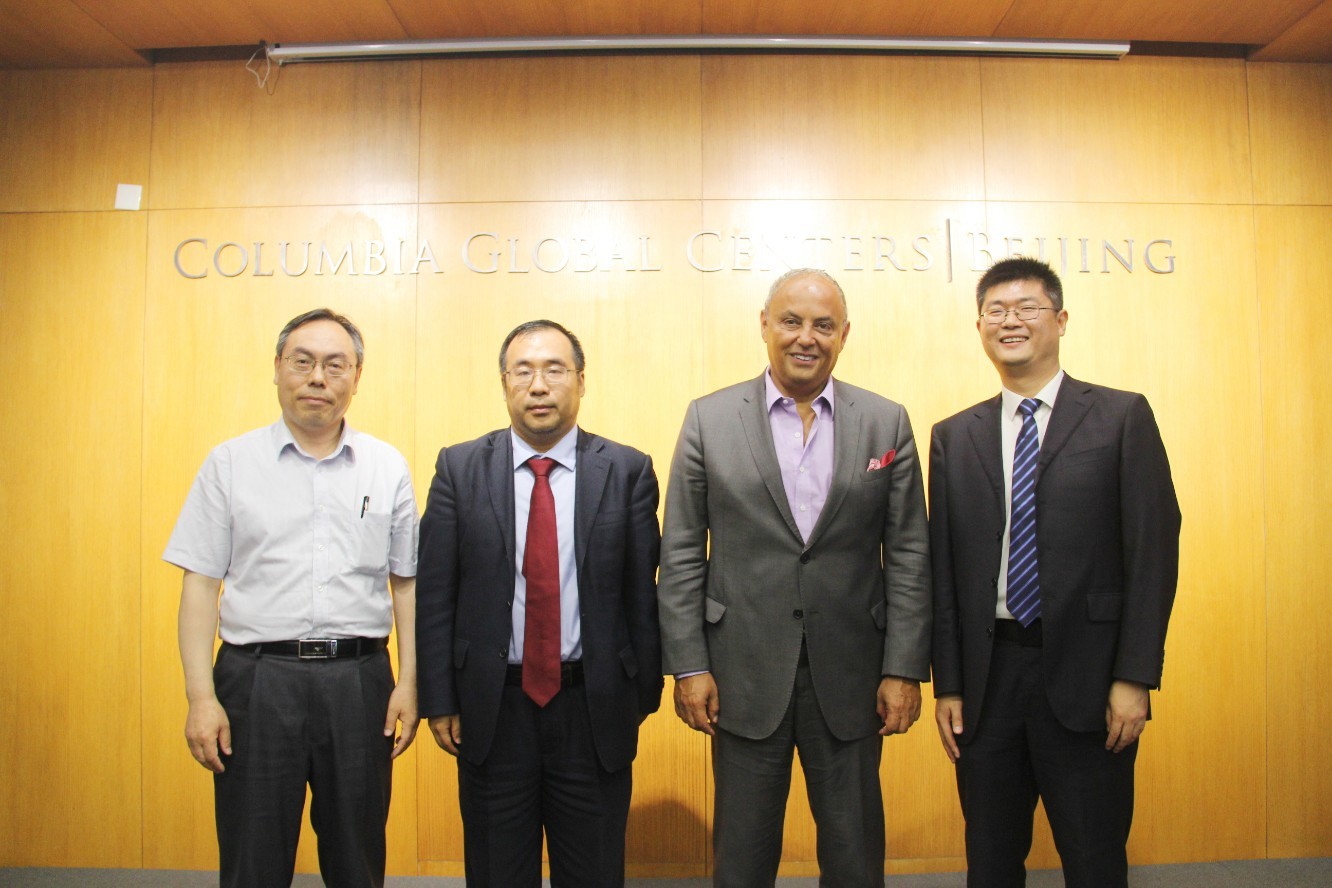
Around 120 people attended the event, including 12 Columbia students and alumni. More than 100,000 audiences viewed the live-streaming online.
Prior to the program, Professor Masri had an exclusive interview with the Global Times regarding the Middle ast topics.
